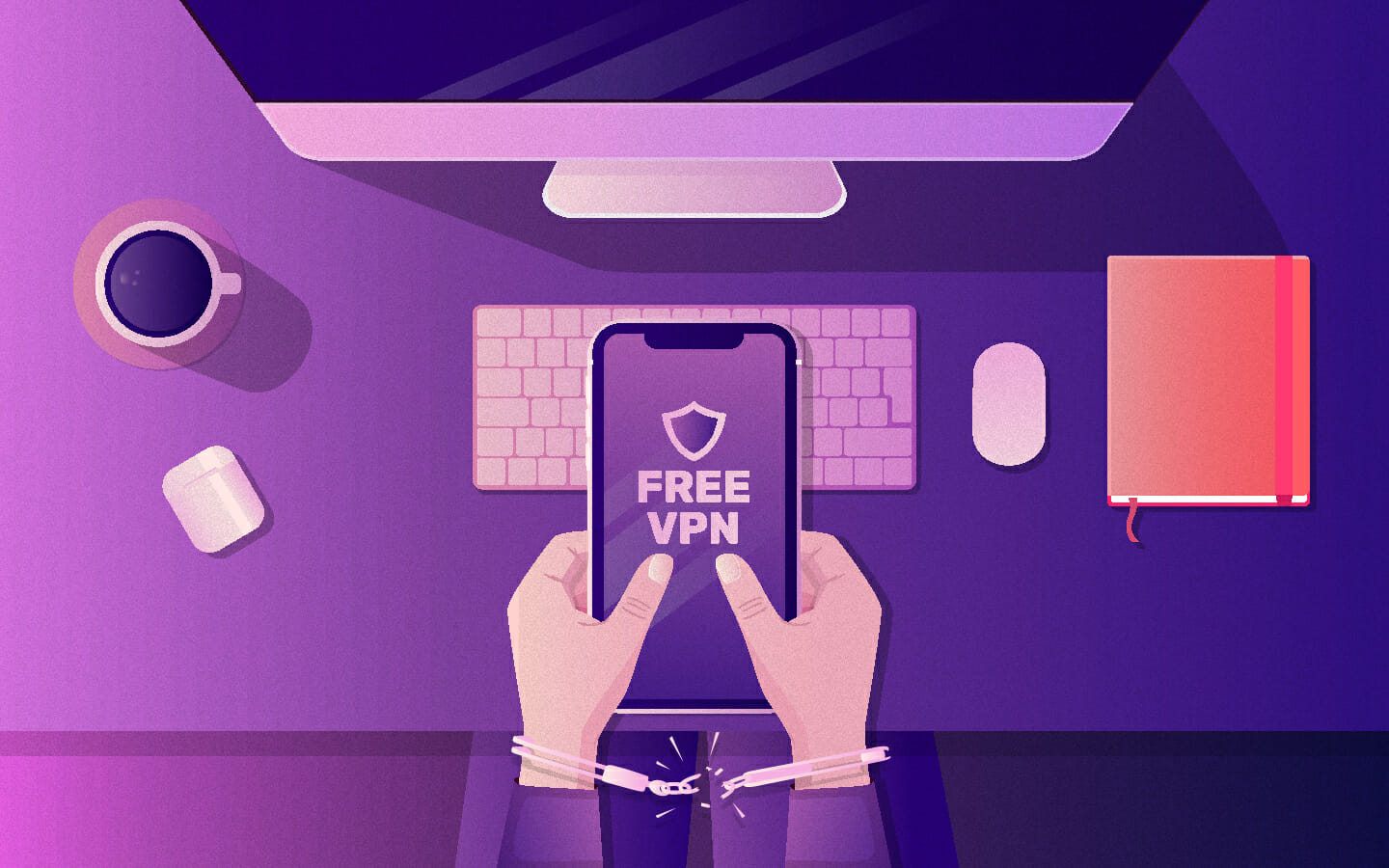The saying “you get what you pay for”, often applies to online services. How does something like a Free VPN fare in this respect?
Not everyone looking into VPN services is ready to cough up the monthly fees. Free VPN providers promise anonymous surfing at a bargain and could look the part to unsuspecting people. But look a little bit beyond the price, and the story gets a little more complicated. Online, free VPN services are hard to find, and that’s for a reason. Paid VPN services use your subscription fee not just to pay for their groceries. Their server network needs continuous maintenance. This means encryption needs to be up-to-date and strong. But also relies on a multitude of servers in various (physical) locations, fast connections, and the development of easy-to-use applications.
A “free VPN” means the provider has to somehow make up for these costs, or compromise on quality and safety standards. No provider is the same. But a “free VPN” very probably means the company is in the business for different reasons than securing your safe and anonymous browsing. It may even use the bait of a free VPN to catch your online details. Eventually selling them off to third parties who use them in their advertisement efforts, giving you the reverse of what you bargained for: a lack of anonymity.
PrivadoVPN: Our #1 free VPN provider!
Are free VPN apps not secure?
Sharing your details with a company in order to use their free VPN service may seem a pretty harmless activity. But there could be serious repercussions. When your details are sold off to third parties or are leaked because the company’s security isn’t up to par. Recent research into VPN providers shows how several providers are not handling in good faith. Mobile apps for free VPN services can seriously compromise your security. They access maps and functionalities in your smartphone they have no business browsing or are used to install malware, causing serious hazards to the people who own the phones.
The numbers the researchers came up with are telling: 35 percent out of 283 free apps available in the Android store, hid malware. Digging further, the researchers found some of these apps didn’t use any form of encryption at all, opening up smart devices to further attacks.
Which free VPN services are trustworthy?
Luckily there are several VPN services that are free of charge and work without malicious intent. First off: most VPN providers offer a free trial run! Others offer a free service next to their paid subscriptions. Limiting features such as internet speeds, your data amount, or the number of servers you can access.
Below you find a list of fairly reliable, free services:
PrivadoVPN
PrivadoVPN is a very young VPN provider that has started out with a stellar free VPN option.
Quickly taking the world by storm, this little Swiss-based provider’s free VPN option is already winding to take on the premium competition! It takes the top spot on our list simply because this is pretty much the only free VPN provider that comes with full streaming and downloading support.
Hide.me
Hide.me offers a free VPN service with a data cap of 10 GB per month, allowing the use of only three server locations (out of thirty).
Tunnelbear
Tunnelbear is fairly popular, despite its data cap of 500MB per month. This cap can be raised by sending out tweets that advertise the service to your network. But you’ll have to subscribe to properly use the full service.
Hotspot Shield
Hotspot Shield is another popular free VPN service, that has a 500 MB data limit per day. Now that might not seem as much, but it actually gives you more data per month than most of the limited premium VPNs.
Their free option is seriously s-l-o-o-w though, compared to regular (paid) VPN services. Users are also shown ads while browsing, something you want to avoid at all times. Ads unsuspectedly can cause security issues.
Building your own, free VPN
Technically savvy internet users are advised to look into open-source development. OpenVPN and Softether both offer interesting ways to use VPN without spending money on subscriptions. The biggest drawback is you need to have proper skills and experience in internet technology to pull off this trick.
Also, you have to use an existing VPN service to log in. Or your own server in a different country than your computer is in. And you need to make sure it is safe. You can find more info on testing your VPN connection in our dedicated article on this matter.
Last but not least: the Opera internet browser deserves a mention. This alternative to Internet Explorer, Firefox, and Chrome has an excellent, free VPN built into its browser service. This will only work for browsing (not for downloading Torrents). But it helps you to surf anonymously and access the browser version of various streaming services.
Conclusion
Although “free” and “secure” and “anonymous” can go hand in hand, we still advise looking out for the best-paid options in the field. Monthly payments are relatively low, and give good value-for-money, considering what is at stake. For more info, we made a list of the best VPN providers that will charge you some money.


